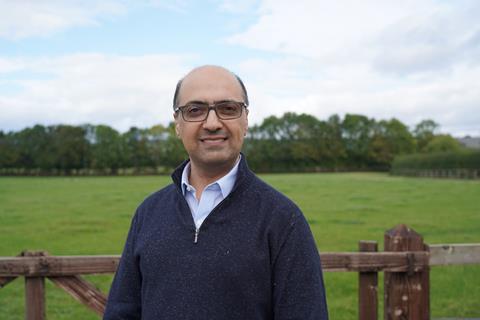Trinity AgTech founder says modern farms must take on an ‘adaptive capacity’ mindset

Farmers have been urged to focus on five priority areas to build their ‘adaptive capacity’ and business resilience.
According to a new report launched by Trinity AgTech at the Oxford Farming Conference, by improving their ability to adapt, farms can more successfully anticipate, respond to and benefit positively from change.
The report aims to showcase the ‘success metrics’ of leading farm businesses and independent experts, across focus areas of business bravery, smart trust, learning, ability to adapt and networking.
What is ‘adaptive capacity’?
Dr Hosein Khajeh-Hosseiny, founder and executive chairman at Trinity Natural Capital Group, explained adaptive capacity is fundamental to success during what is described as a ‘VUCA’ era – volatile, uncertain, complex and ambiguous.
“VUCA makes it impossible to confidently predict the future,” he said. “Yet, the unique framework we’ve developed for this report will support farmers to think honestly, rigorously and systematically about how we do business in a VUCA world.
”History has shown that success can be achieved by thoughtfully embracing change. But this report sets itself apart by launching a credible scoring system centred around determining farmers and their team’s adaptive capacity to develop a resilience mindset.
“By considering how you objectively score across these five key areas, you can reveal to yourself where to develop your adaptive capabilities and assets. Currently, there is a spotlight on the way we approach farm business analysis, decision making, and farm management and the report aims to support farmers in making changes, creating buffers, and confidently tackling the most challenging situations.
“Shying away from change and striving for ‘business as usual’ is a natural characteristic, but more so today than previously, success comes from the ability to adapt to change and capitalise on the opportunities.
“We have to be honest and upfront about our business position and mindset,” he said. “We can no longer be complacent and hide behind inaccurate metrics if we are to capitalise on the opportunities that are currently present.
“For UK farmers, inhabiting a world of constant flux is not a new concept, but it’s no less daunting or challenging. However, we know farmers have adapted and overcome challenging times before. They have the vision and ambition to survive and thrive.”
‘Business as usual won’t work’
The concept of ‘farming a new future’ runs throughout the report and Khajeh-Hosseiny states that farms have two options: build resilience into their business or refuse to adapt. Neither are easy, he said, but the latter won’t pay off.
“The risk is that some ‘business as usual’ approaches that may have worked previously, simply won’t work in the unpredictable future,” he added.
Through a series of case studies and expert commentary, the report showcases how to examine options to leverage farm assets and natural capital and what the opportunities are to capitalise on these when you adopt the right mindset.
“There is no doubt that the agricultural sector is experiencing turbulent times and the future that lies ahead is uncertain, but if one thing you can be certain of is your business’ resilience, then the unknown is something to look forward to and embrace,” Khajeh-Hosseiny concluded.



